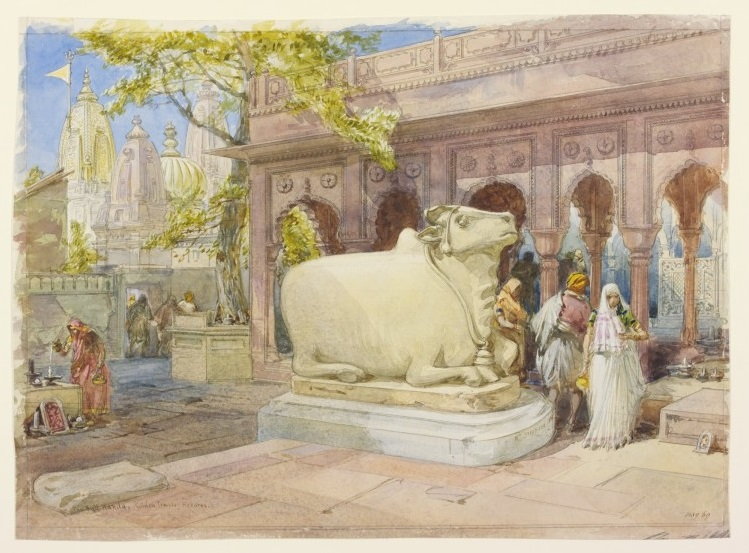A Small story about Kashi city: - #Thread
Kashi is the spiritual name for #Varanasi, the pious city. Its name means "#CityofLight" r "Shining city" in Sanskrit and originates from the word #Prakasa, which means "#Light"
#GyanvapiTruthNow

Kashi is the spiritual name for #Varanasi, the pious city. Its name means "#CityofLight" r "Shining city" in Sanskrit and originates from the word #Prakasa, which means "#Light"
#GyanvapiTruthNow


According to legend, as Shiva was ready to arrive in Kashi, King Divodasa forbade him from entering the city because he knew if Shiva was present, he would no longer be the exclusive focus of attention. 

"A monarch can only control the city if everyone looks up to him," he explained. Shiva should not appear if you want me to dominate the city. I'll leave if he comes." 

Shiva dispatched two Ganas to the city to investigate the king's whereabouts. They fell in love with Kashi so much that they set their shop just outside the city and never left. They lacked the courage to approach Shiva and say, "We love the city too much." 

Shiva dispatched two more, but they never returned. There are four Gana Sthanas today, one in each of Kashi's four corners, where these four men settled. Then he dispatched Ganapati, who also never returned. 

He then dispatched Kubera, who never returned. Finally, he chose to travel alone, and he had no desire to return. All of this is being mentioned to emphasise how lovely this city was. 

When Agastya Muni was requested to leave Kashi and travel south, he wept and penned a heartfelt poem on the beauty of the city and the agony of parting, which ran into hundreds of stanzas. 

There is a whole lot of science behind how they established certain aspects of the city. It was such a complex and geometrically perfect design. 

Adi Shankaracharya spent a considerable amount of time in Kashi, the famed Mokshapuri on the Ganga's bank. The commentaries on Vyasa's Brahmasutras, the Upanishads, and the Bhagavat Gita were written during his long stay there.
ॐ इति ब्रह्म, ॐ इतीदं सर्वं 🙏
ॐ इति ब्रह्म, ॐ इतीदं सर्वं 🙏

• • •
Missing some Tweet in this thread? You can try to
force a refresh












